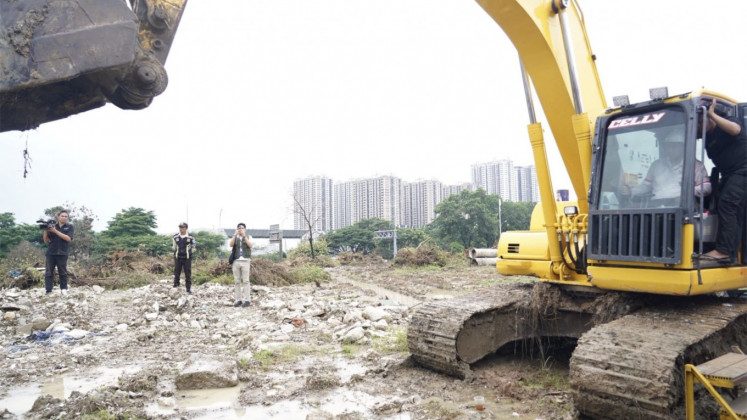Popular Reads
Top Results
Can't find what you're looking for?
View all search resultsPopular Reads
Top Results
Can't find what you're looking for?
View all search resultsLong-term determinants of economic growth
To achieve 8 percent economic growth without falling into the same trouble as in the past, the new administration needs to improve its quality of institutions to achieve more and better investments into the country, while strengthening the country’s capacity to withstand an adverse shock.
Change text size
Gift Premium Articles
to Anyone
A
s Indonesia approaches 2040, it needs to prepare to face a significant demographic shift with an aging population that could put the country’s economy and social systems under pressure. To prepare for the shift, it is crucial for Indonesia to achieve a high growth rate of 8 percent for years to come to be able to build a robust national economy with necessary infrastructure and strong social systems that could ensure the prosperity of the people and bolster the country’s social safety nets.
By reaching this growth target consistently over the next decade, Indonesia can better position itself to meet the needs of its aging population, who will rely on the country to provide proper healthcare and other support systems. Otherwise, Indonesia risks facing a future where it cannot adequately care for its older population.
However, Indonesia has not achieved this level of economic growth since the Asian Financial Crisis (AFC) of 1997. Therefore, achieving such ambitious targets will require substantial structural reform, coinciding well with the start of a new administration. The inauguration of the Prabowo Subianto administration provides a unique opportunity to implement the essential reforms needed to reach this high-growth goal. This article will argue the importance of quality institutions to attract quality investments to achieve the goal.
Learning from the past, Indonesia had miraculously sustained rapid economic growth for 30 years under Soeharto, reaching an average of 9 percent per year between 1988 and 1991, before it saw its gross domestic product (GDP) falling by 13 percent post-AFC in 1998. As Jonathan Temple put it, the period of high economic growth at the time marked Indonesia’s “growing into trouble” where weak institutions finally unraveled their latent risk with the AFC.
Temple suggests that fast growth interacting with weak institutions gradually undermines a country’s capacity to withstand an adverse shock. In Indonesia’s case at the time, weak institutions allowed pervasive corruption and rent-seeking during the period of high economic output, then hindered the application of prudential rules to financial institutions and transactions connected with the regime that led to the crisis.
According to Dani Rodrik, institutions that provide dependable property rights, manage conflict, maintain law and order and align economic incentives with social costs and benefits are the foundation of long-term growth. In countries with weak institutions, such as where corruption is pervasive, property rights are uncertain and legal systems are inadequate in enforcing the rule of law, enterprises react by withholding investments and taking shelter in the official economy.
Therefore, to achieve 8 percent economic growth without falling into the same trouble as in the past, the new administration needs to improve its quality of institutions to achieve more and better investments into the country, while strengthening the country’s capacity to withstand an adverse shock.


















